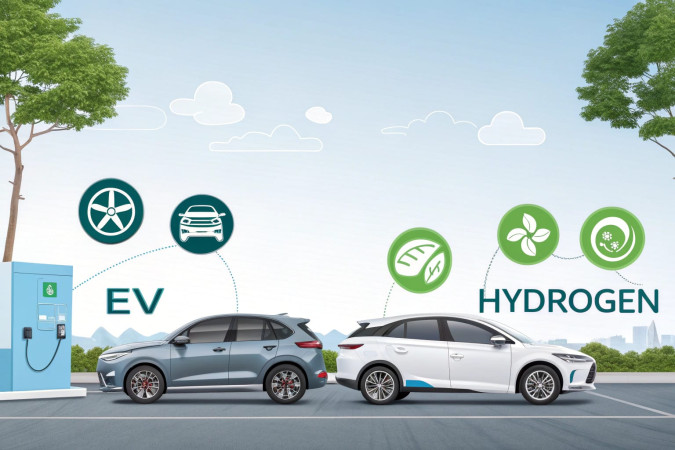
Follow India Renewable Energy News on WhatsApp for exclusive updates on clean energy news and insights
EVs vs. Hydrogen Vehicles: The Future of Green Transport
Mar 19, 2025
With sustainability and climate change at the forefront, Electric Vehicles (EVs) and Hydrogen Fuel Cell Vehicles (HFCVs) are the two major alternatives to fossil fuel-based transport. But which one is the future?
EVs: Run on lithium-ion batteries, charged via grids, solar, or fast chargers. Examples include Tesla Model 3, Nissan Leaf, and BMW iX.
Hydrogen Vehicles: Use hydrogen gas to generate electricity in fuel cells, emitting only water vapor. Examples include Toyota Mirai, Hyundai Nexo, and Honda Clarity.
Key Comparisons:
• EVs are more energy-efficient and already use renewable energy sources.
• Hydrogen is better for long-haul transport (trucks, ships, airplanes) due to faster refueling and longer range.
• Hydrogen production is still carbon-intensive unless derived from green hydrogen via electrolysis.
Real-World Adoption:
• Tesla, Rivian, and BYD lead the EV market with affordable, efficient models.
• Hyundai & Nikola are investing in hydrogen-powered trucks.
• Airbus aims to launch hydrogen-powered planes by 2035.
Future Outlook:
Both technologies will coexist to decarbonize transport. EVs will dominate personal and urban mobility, while hydrogen will serve heavy industries, aviation, and freight transport.
Conclusion:
• EVs are ahead due to affordability and expanding infrastructure.
• Hydrogen has potential but requires cost reductions and greener production methods.